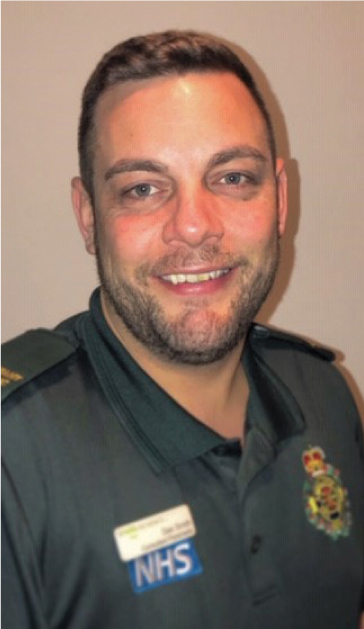
As I arrived for the first day of a recent training course, it was inevitable that we would be exposed to an ice breaker; so off we go, around the room disclosing names, what brought us there, something interesting about ourselves and, of course, our job titles. Cue some nodding heads, intended to conjure an impression of understanding, but betrayed by quizzical facial expressions that indicated the thought, ‘A what paramedic?’. I only made it to the first coffee break before someone asked me what a consultant paramedic is. Proof, I thought, if it were needed, that this column remains a useful exercise in sharing my role and my thoughts on paramedic practice today.
We are naturally inquisitive beings, and where a gap in our knowledge or understanding exists, we do what we can to fill the void. Hopefully we can establish enough information to accurately fill the gaps; but in the absence of information, our brains naturally try to fill those gaps based on past experience, general understanding and good ole’ fashioned guess work. I'll regularly see this when I begin to explain what I do, or more specifically, what my clinical interests are. Most of the time, the individual appears to have filled the information gap with a preconceived idea of a consultant paramedic—the assumption being that I'm a critical care fanatic who enjoys nothing more than getting stuck in at a major trauma or cardiac arrest incident. So I say this openly to you now: my name is Dan Smith, I am a Consultant Paramedic and I detest critical care work.
Whilst I am in a sharing mood, I will also admit that I believe paramedics leaving the ambulance service for other clinical roles can be a positive thing. Now…slowly let out the deep breath you have drawn in, and continue reading because those opinions, without explanation, are dangerously simplistic. Let me help you fill the gap!
Like everything in the NHS, I am complex. I have a strangely eclectic (some would say weird) taste in music and the arts. I have my favourite places to eat, drink, dance. These are my personal preferences, and I am extremely lucky to live in a city that caters for my preferences. Yet, in my early career, my clinical interests were simply that, interests; and my organisation and profession struggled to cater for me. The role was a paramedic and that meant a uniform, an ambulance and, as my job description demanded, attending a ‘full range of routine, urgent and emergency incidents’.
My preference, then and now, is more towards urgent care practice. That may not be trendy, or newsworthy, but it's definitely where the workload is increasing; where many risks lie; and in my opinion, the more challenging and interesting area of practice. Many friends and colleagues have developed over the years into that area of practice and love their specialty roles. However, this is not about directing you towards urgent care; it is simply to say, it is wonderful that there is now a choice with a myriad of options available to everyone within the profession.
Clearly, I do not think anyone who feels compelled to leave the ambulance service because of an unhappiness, or worse, poor cultures or bullying, is in any way a positive thing. All organisations must ensure they create a supportive space, which feels like a great place to work—somewhere we can be proud of. But options to develop interests, expand specialist knowledge and become more rounded clinicians are part of generating that cultural feeling of belonging in a workplace, and that has to include a supported option to leave.
I am genuinely proud of our profession and the people I work with. I appreciate that I am lucky to feel that way, and that it is not strictly ‘cool’ to say it aloud, but I am. At a recent long service award ceremony, speaking to some recipients, they of course had improvement ideas, but they were proud, they were happy and, importantly, many were no longer working in traditional ambulance service roles. They had developed their personal interests into a career pathway, specialising, developing and taking full advantage of the freedom that brings.
When I first started on my advanced practice career in 2009, an eminent and respected senior colleague said that if I was still working for the ambulance service in 5 years, then he would have failed in his vision for the future. Well, I am, but that is through choice. I have options and, for that, I am extremely grateful. My view is that if I did not have that choice of employer, the potential for feeling trapped could be demotivating. Feeling free to evolve and develop specialisms of choice is important and, for that reason alone, the option to leave is an important one. The challenge is ensuring that the desire to move on is a personal development choice, not a necessity, and all organisations should work together to share their professional workforce, develop them, support them and, where necessary, allow free movement that encourages multidisciplinary working across organisational boundaries and the choice it brings for individuals. We are lucky to be in our profession during such a brilliant time, filled with opportunities to develop and diversify. My role is to help others release their ability to shine, develop and make good choices.

